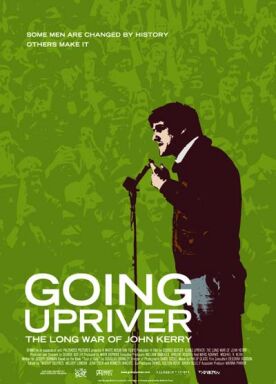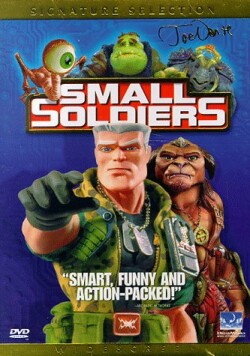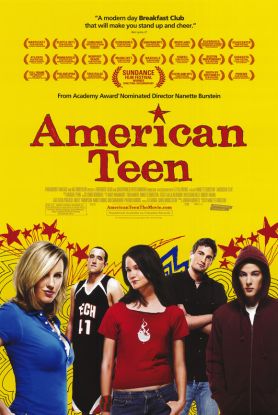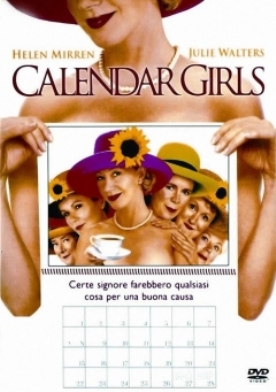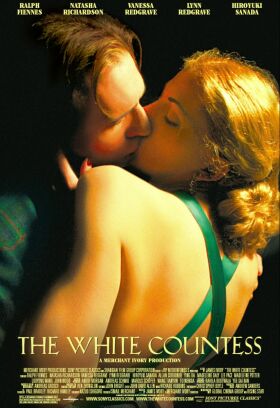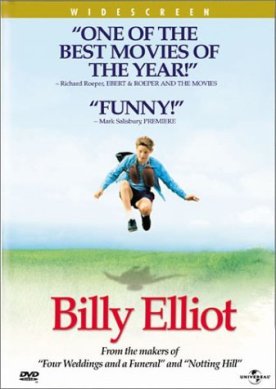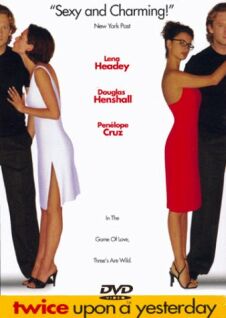Going Upriver: The Long War of John Kerry
In all the Bush-bashing or Kerry-promoting movies that I have seen during this election season — ever wonder whose side Hollywood is on? — I hadn’t until now seen one that I thought might sway the election. Michael Moore’s Fahrenheit 9/11 is great propaganda, but only if you come to it (as of course so many now do) already persuaded that your President is a really bad and/or stupid guy. The slightly more disguised messages of The Day After Tomorrow or The Manchurian Candidate or Silver City can’t emerge effectively, it seems to me, from three such artistic disasters. And the straightforward left-wing agitprop won’t be seen by more than a handful of true believers. But in George Butler’s Going Upriver: The Long War of John Kerry, I think we have a winner. This paean to the Democratic standard-bearer as a Lincolnesque figure, a war hero and also a hero of the (Vietnam) anti-war movement, actually might change some minds — those of wavering Kerry supporters who may well be persuaded by it to vote for Bush.
Kerry’s obsession with Vietnam has always been curious. At the Democratic convention he tried to make his service in Vietnam his chief qualification for the presidency. But Going Upriver reveals that it is not really the short war — the four months he spent in Vietnam before his third purple heart allowed him to go home — that he is proud of but the “long war” which began with his assumption of the leadership of the Vietnam Veterans Against the War (VVAW) and has continued ever since. This he regards as the truest expression of his patriotism. I think a majority of Americans will disagree. He does too, or he would not have taken the trouble to create that misleading impression at the convention.
At any rate, the movie lets the cat out of the bag. It begins with an anonymous voiceover telling us that we can’t understand John Kerry at all without understanding what Vietnam means to him. It is the central episode in his life. He has throughout his political career applied what he believes to be the “lessons” he learned from his short period in-country.Whatever else this may mean, it certainly seems to mean that he measures all American foreign policy initiatives, including the war against Islamic terrorism, by the yardstick of Vietnam — which is to say the anti-war movement’s version of Vietnam. Thus, George Bush fills the Nixon role as Tricky George, deceiving the country into the “quagmire” of Iraq, the new Vietnam, which is “the wrong war at the wrong time in the wrong place.” That’s why Kerry says that the President “owes the American people the truth and he owes the troops the truth” — as if he took it for granted that Bush were another Johnson or Nixon, routinely lying about the war.
Butler himself must have a dim appreciaton of the fact that he is doing Kerry no favors by associating him so closely with the anti-war movement, since he leaves out Kerry’s bout of hysteria — which he now professes to regard as nothing but a poor choice of words — in accusing his fellow veterans of the most appalling atrocities and war crimes. Nor is there any mention of the fact that the Winter Soldier hearings in Detroit, at which we see Kerry as an observer, were subsequently discredited, or of his disloyal if not positively treasonous trip to Paris for separate talks with the North Vietnamese. Maybe there were some excesses. Mistakes were made. But if Kerry now thinks that any of his activities at the time were mistaken, we do not hear about it from George Butler. Not only Kerry but the movement with which he was so closely identified receive not a word of criticism here.
And this suggests that the real “lessons” Kerry learned were not from Vietnam at all but from the self-conceit of his fellow anti-warriors as noble victims awakening the conscience of their country to the immorality of a war waged by not one but two American administrations filled with wicked, corrupt and unprincipled men — or at best men in thrall to what Neil Sheehan, one of those interviewed for the movie, contemptuously calls “Cold War myths.” Ironic, isn’t it, that this view of the war has now itself become a myth? It is a myth lovingly tended by the media — who are still proud of what they see, rightly, as their own key role in getting America out of Vietnam — and by the “progressive” or Carterite political tendency in foreign policy to which Kerry has belonged throughout his career.
Neither Kerry nor Butler seems to realize that the great majority of the American people do not subscribe to this tendency. Nor, although they have come in retrospect to think of the Vietnam war as a mistake, have they ever bought the protestors’ line that their elected leaders were evil men. Now it will come as a bit of a jolt to those who don’t remember the passions of the time to see the ex-Marine in the film who throws his medals onto the steps of the capital while calling both Presidents Johnson and Nixon “murderers.” Did Kerry think that too? Does he think it now? He threw — or pretended to throw — his medals away, though the movie omits this detail. He also said that his fellow soldiers had routinely committed atrocities, and that the war was “immoral”, “obscene” and “insane.”
This was the language of those who supposed, in the common formulation of the times, that America was “a sick society,” and I think Kerry himself was hinting as much in his now-famous testimony before the Senate Foreign Relations Committee, the climax of the film, when he said that he hoped we would look back on the the war and the successful protests against it as a time “when America turned.” The idea of America’s “turning” depends on a belief, which was certainly very common among the supporters of the anti-war movement, that a lot more was wrong with the country than could be accounted for by a mere blunder in Vietnam.
Moreover, as we look back we can’t help noticing that America never really did “turn,” at least not in the way that he meant it. And the way it did turn after the protests — towards individualism, permissiveness and less social cohesion — is something a majority still have decidedly mixed feelings about. Butler’s attempt to associate Kerry with what remains, in the eyes of a significant minority, the romance of the protests is only likely to suggest to the majority how shrill and hysterical those protests were. The aging anti-warriors may now remember the hippie garb and grooming, the self-righteous sloganeering, Bella Abzug and Coretta Scott King and Peter Paul and Mary singing “Blowing in the Wind” with nothing but affection, but to most people today it all seems just a bit silly.
Discover more from James Bowman
Subscribe to get the latest posts to your email.

